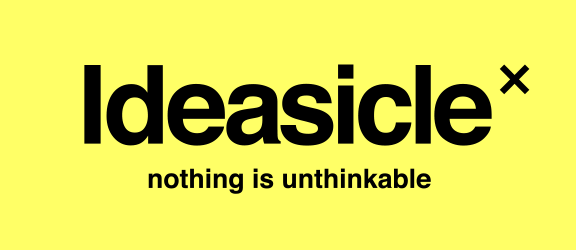Creative People, Be Proud Of Your Apophenia (And Ignore The BBC)
Ever heard of apophenia? I hadn’t either until I watched a recent video from the BBC called “Why we are so prone to seeing patterns in randomness.” It describes apophenia as a condition we should avoid because it will lead us astray. The problem is, what it describes as a “condition” is a necessary ingredient in the creative process. Have a watch and I’ll explain:
Is creativity deeply problematic?
The VO tells us:
The tendency to see meaningful connections between completely unrelated things is what psychologists call apophenia…and this can be deeply problematic.
Deeply problematic, eh? Would these researchers call peanut butter and chocolate completely unrelated, problematic, and with zero potential for a meaningful connection? Probably, but tell that to H.B. Reese! Should the inventor of Reese’s peanut butter cups have gotten professional help for his apophenia condition?
Steven Pinker, Psychologist & Author, then puts a finer point on this “disability” that includes being too impressed by coincidences:
“We often are too impressed by coincidences because we forget about how many different ways there are for coincidences to occur.”
Wait, let me get this straight. We are so surrounded by the possibility of coincidences that we become too impressed with them when they occur? Way to put a dripping wet blanket on the magic of the universe, BBC.
But more practically, this position that we give too much meaning to unrelated things is to completely ignore the observer and what that person considers meaningful in the first place. And who are these researchers to say that chocolate and peanut butter are not, and can’t be, meaningfully connected?
Someone hold me back.
ideas are, by definition, the combination of two seemingly unrelated things.
If you’re reading this, you’re probably a creative person or in some form of creative business. And I know you’ve probably already watched the video above from the BBC, but please try your best to unwatch it. It’s a depressing way of looking at life. Worse, it’s a hopeless way of looking at life because it ignores the root cause, the energy, and the mysticism involved in the creative process.
Now, I realize the video above is also pointing out how some data we experience can wrongly seem connected due to random clusters that we perceive as meaningful and aren’t. Those misperceptions can lead to poor decision making. Got it. But I think the video goes too far to poo-poo making connections that could lead to new ideas.
So keep finding meaning in unrelated things. Making connections others can’t see. Inviting some of those coincidences to happen. And then wear your “apophenia” proudly.
The progress of the world depends on it.
Will Burns is the Founder/CEO of Ideasicle X. Follow him on Twitter @willoburns.

